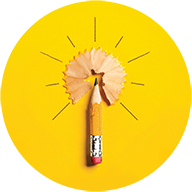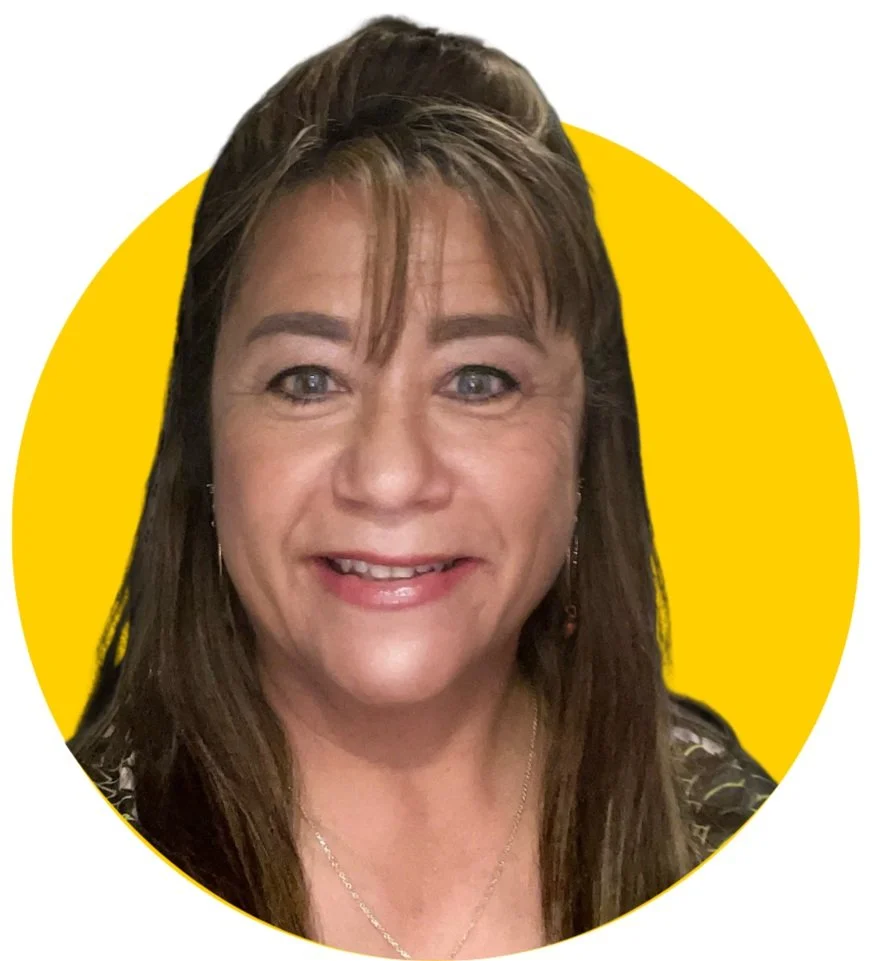Kimberly Ah Soon
“Being a partner in helping new teachers navigate their learning experiences, overcome challenges, and discover their potential warms my heart. Knowing that I play a role in shaping their journey and, in turn, the futures of their students, reaffirms my passion for this work.”
Q: Name | Location | Years in Education
Kimberly Ah Soon | born and raised in Kāneʻohe, Hawaiʻi, residing in ʻEwa Beach, Hawaiʻi | 34 years
Q: Tell us the story of your journey to becoming an educator. What are the significant waypoints along that path?
My journey to becoming an educator is deeply rooted in my family history and my personal experiences as a student. I come from a long lineage of educators on my father’s side of the family. My father served as the principal at Pū‘ohala Elementary School, and his siblings were all teachers across various grade levels, from kindergarten to high school. Growing up in a family so immersed in education, I swore I would never follow in their footsteps. My decision stemmed partly from wanting to carve my own path, but mostly because school was a constant struggle for me.
I didn’t like school. It was difficult and often felt boring, but there was one bright spot: athletics. I shined in my athleticism and found joy and purpose in physical education and playing sports. These were the moments when I felt most alive and capable. However, outside of the gym or the field, the challenges of academics often left me feeling defeated. One of the most pivotal moments in my educational journey came when I took the SAT for college entrance. My combined score was 490. Seeing that number broke me.
“I remember telling my father, with tears in my eyes, that I didn’t want to go to college because I believed I would fail. In that moment, my father gave me advice that would change the trajectory of my life: “Do NOT let a test score define you!” Those words struck a chord. With his encouragement, I left my pity party behind and decided to face the challenge head-on.”
I went to college determined to prove to myself that I was capable. It wasn’t easy. Success required extra studying, countless hours of hard work, and a relentless commitment to my goals. But that effort paid off. I graduated with a cumulative GPA of 3.8, a far cry from what my SAT score might have predicted. That accomplishment became a turning point for me. It was during those college years that I decided to become a teacher.
My struggles in school gave me a unique perspective and a deep empathy for students who find academics challenging. I wanted to help students like me—students who might feel that school isn’t for them, who might feel defeated by tests or grades. My goal was to be the kind of teacher who inspires, motivates, and believes in every student’s potential to succeed.
Now, as an educator, I draw from my experiences to create an environment where students feel supported and encouraged. I understand the power of believing in someone, even when they don’t yet believe in themselves. My journey from struggling student to dedicated teacher is a testament to the idea that no test score, challenge, or setback should define a person’s future. Instead, with determination and support, we can overcome obstacles and achieve more than we ever thought possible.
Q: Who inspired you (friend, family, coach, mentor, guide, sponsor, advisor) to become an educator, and/or get involved in education?
Reflecting back, I think that my father inspired me to become an educator. During my time at Pu‘ohala Elementary School, where he served as the principal, I had the unique opportunity to witness his leadership up close. My father was a man of few words, but his actions spoke volumes. His empathy, kindness, and compassion for helping others were evident in everything he did.
Q: When (and where) do you feel you are most likely to succeed as you practice your educational art, and your educational craft?
I feel most successful as an educator when I collaborate with my colleagues at school. Whether we’re learning, unlearning, or relearning together, these moments of shared growth energize and inspire me. I also thrive when attending conferences and professional learning events, where I have the opportunity to engage with educators from around the world. These experiences broaden my perspective, deepen my practice, and remind me of the collective power of educators working together to make a difference. Additionally, I love coaching new teachers and witnessing their passion and zest for the profession. There is nothing more rewarding than seeing their excitement as they help light bulbs go on for their students, and knowing that their enthusiasm will shape the next generation of learners.
Q: What are the skills you feel most confident using in your life, and work in education?
The skills I feel most confident using in my life and work in education include my adaptability, flexibility, and willingness to embrace change and try new approaches. I take the initiative to learn new things and explore how AI and technology can enhance my teaching and coaching practices. My greatest strength, however, lies in my deep empathy for others and my passion for being a changemaker in education. These qualities drive me to connect with students and colleagues alike, fostering an environment of growth, innovation, and meaningful impact.
Q: What are the most significant challenges you are working to overcome as you define what school could be?
The most significant challenges I am working to overcome as I define what school could be involves leading meaningful change with like-minded individuals. My focus is on building momentum within a core group of educators who share a vision for innovation and then inspiring others to join us in transforming education. One of the biggest obstacles is that the educational system remains rooted in an industrialized model of society, making systemic change difficult. Many of the individuals who hold the power to enact these changes lack the knowledge or the understanding of why change is necessary. Overcoming these barriers requires persistence, collaboration, and a clear vision of what education can and should become.
Q: Describe some of the most rewarding moments in your time in education; those crazy days when you knew you were having an impact...and it felt really good.
Some of the most rewarding moments in my time in education have come from working with new teachers entering the profession. Witnessing their "light bulb" moments, their "aha" realizations and the incredible growth they achieve over the course of a school year is truly inspiring. These moments remind me of the similar joy I experience watching our students grow and thrive. Being a partner in helping new teachers navigate their learning experiences, overcome challenges, and discover their potential warms my heart. Knowing that I play a role in shaping their journey and, in turn, the futures of their students, reaffirms my passion for this work.
Q: What do you most want to learn from this global online community of your fellow educator-leaders?
What I most want to learn from this global online community of educator-leaders is how to bring innovative and sustainable changes to education. I want to explore strategies that have successfully bridged the gap between traditional education systems and the needs of a rapidly evolving world. By learning from the experiences, challenges, and successes of others, I hope to gain insights into how to better integrate technology, foster collaboration, and create meaningful learning opportunities for both students and educators.
Above all, I am eager to connect with like-minded individuals who are passionate about reimagining education. I want to learn how to build momentum for change, inspire others to join the journey and develop practical approaches for creating a future-ready educational system that values empathy, creativity, and adaptability.
Q: What is something quirky that you love about yourself and would help other community members to get to know you?
Something quirky that I love about myself is that I wish I could create a paid position that would allow me to attend educational conferences around the world. It would be a dream come true to explore innovative ideas and approaches in education and then share that knowledge with other educators and schools. The idea of bridging global insights with local practices excites me and aligns perfectly with my passion for lifelong learning and collaboration.
Q: Ben Franklin supposedly said, "Early to bed, early to rise makes a man healthy, wealthy, and wise." You might think Ben was full of baloney, but we are wondering when YOU are most awake, alive, productive, creative, and/or reflective. Early morning, late at night, some other time?
I find that I’m most productive in the early morning when my mind is fresh and focused. However, I tend to stay up late at night, reflecting on the day and allowing my thoughts to settle into new perspectives. It’s interesting how different times of the day bring out different sides of my productivity and creativity!
Q: Cold night, snow out, warm fire, hot beverage, or hot day, white sand beach, shorts and slippers, cold beverage?
My dream is to be sitting by a warm fire, watching snow fall outside while sipping on a hot cup of coffee. But in reality, I’m usually at the beach, soaking in the sun with shorts and slippahs, enjoying ice-cold water.
Q: The coolest thing that happened to me today (the day I am filling out this form) was…
The coolest thing that happened to me today was getting to help my 24-year-old son, who just graduated with his Bachelor's in Elementary Education, set up his very first classroom as a long-term substitute for a second-grade class. It was so inspiring to see his passion and intentionality as he thoughtfully created the classroom space. Watching him pour his heart into this process and seeing his love for teaching truly brought me so much joy. As a mom and fellow educator, I’m incredibly proud and excited to now be colleagues in this field. It’s a special moment I’ll cherish forever!
Q: Putting on your futurist cap: What might your school/learning spaces (or “schools” in general) look and sound and feel like in 25 or 50 years?
In 25 to 50 years, schools and learning spaces will be transformed into dynamic hubs where education is deeply integrated with real-world experiences. Classrooms will blend cutting-edge technology with hands-on learning, where students engage in real-world projects from day one. Industry professionals, entrepreneurs, and experts from various fields will collaborate directly with students, offering mentorship and working together on actual problems and innovations. Students could work alongside engineers, scientists, designers, and other professionals to tackle real challenges—from designing sustainable cities to creating solutions for global health issues.
Q: And finally, what do you think is the purpose of education? (Clearly not a small question, but we hope you enjoy responding!)
The purpose of education is to foster personal growth, critical thinking, and lifelong learning while preparing individuals for the future. It equips students with the knowledge and skills to solve real-world problems, collaborate effectively, and adapt to new challenges.
“Education also promotes social mobility by providing equal opportunities and empowering individuals to reach their full potential. Beyond academics, it cultivates responsible citizens who contribute positively to society, understanding their rights, and duties, and the importance of ethical decision-making. Ultimately, education is about unlocking the potential of each person to thrive and make meaningful contributions to the world.”

